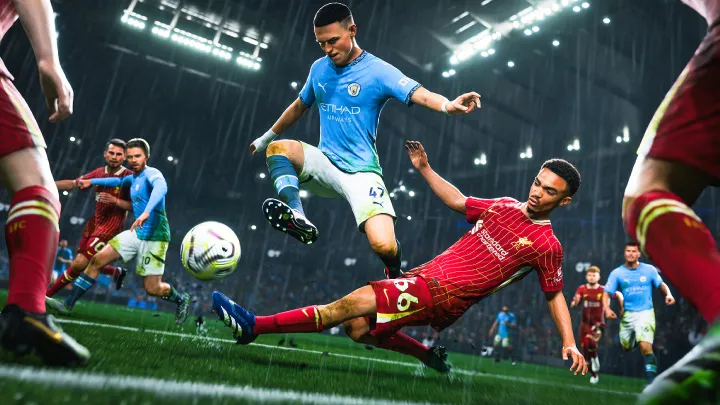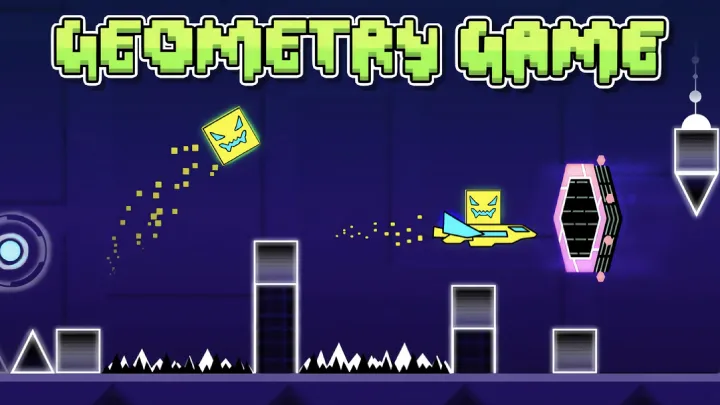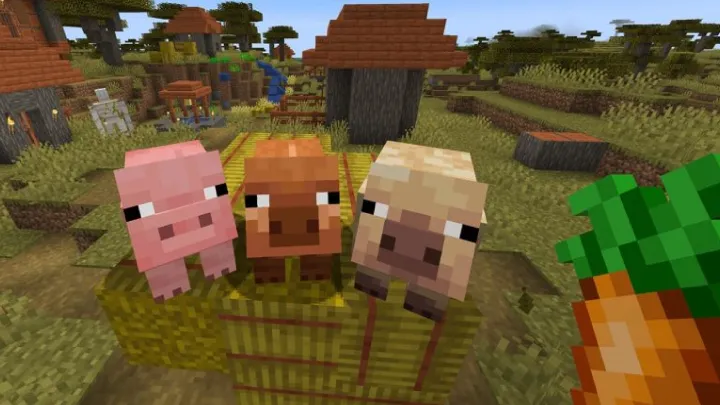The moment the whistle blows in FC25, the pitch transforms from a virtual canvas into a battlefield of tactical prowess and micro-second decisions. For the uninitiated, the speed, precision, and depth of a modern football simulation can feel like an overwhelming torrent of information. Yet, for the seasoned professional, this is not a chaotic frenzy, but a perfectly orchestrated ballet of strategy and execution. A true master understands that victory is not a matter of button-mashing or luck, but of adopting a holistic mindset that encompasses every phase of the game. This comprehensive guide, authored from the perspective of a veteran who has mastered previous iterations and anticipates the evolution of the sport, will provide you with the tactical framework and operational discipline needed to dominate the digital pitch. We will transform your initial confusion into a well-organized, mission-critical approach to the game.

The Core Philosophy: The Tactical Mindset
A master player of FC25 operates with a distinct mental discipline. They do not merely "play" the game; they analyze and deconstruct it. Every action, from a simple pass to a complex set-piece, is purposeful, and every piece of information is a vital clue.
The first principle is to think in phases. Football is a game of constant transitions. The expert player does not see the game as a series of isolated events, but as a continuous flow between three distinct phases: attack, defense, and transition. A good player only sees the ball; a master sees the entire pitch, understanding their team’s position in relation to the ball and anticipating the next phase before it happens. Your most valuable resource is not the speed of your players, but the speed of your tactical thinking.
Secondly, you must embrace the statistical reality. Modern football simulations are built on a foundation of data. Player attributes, tactical settings, and even the direction of your passes are all governed by a complex system of numbers. The expert player engages in a constant dialogue with the game's mechanics, asking questions and meticulously noting the answers. Why did that pass fail? Why was that shot saved? Every stat, every piece of in-game feedback, is a word in the game's cryptic language. Your primary weapon is not your player’s strength, but your understanding of the underlying system.
Thirdly, you must prioritize space over speed. In the early stages, the temptation is to rush forward with your fastest players, trying to outrun the opposition. The expert knows this is a fatal error. True progress in FC25 is measured not in how fast you can run, but in how effectively you can manipulate space. The best attacks are not built on direct sprints, but on intelligent movement and passing that creates gaps in the opponent's defense. A master never makes a run without a purpose, as a run in the wrong direction can close down a passing lane and kill an attack.
Part 1: Foundational Gameplay - The First Touch and Beyond
Your first few hours in FC25 are a rite of passage. This is where you develop the foundational skills that will serve you throughout your journey.
Step 1: The Initial Survey. Before you even receive the ball, take a moment to pause. Do not rush to receive the pass. Instead, conduct a full 360-degree survey of the pitch. Notice the position of your teammates, the location of the opposition, and the open lanes of attack. An expert player trains their eye to quickly identify open space and potential threats. This initial survey is your tactical reconnaissance.
Step 2: Methodical Passing. Once you have the ball, approach passing with a systematic method. Do not simply pass to the nearest teammate. Instead, engage in a logical sequence of passes that moves the ball into a dangerous area. Use the full range of passes at your disposal—short, long, through balls, and crosses. The expert player understands that a series of simple, well-placed passes can be far more effective than a risky, low-percentage through ball.
Step 3: The Art of Mental Mapping. Even though the opponent's formation changes, the expert player builds a dynamic mental map. This is not a physical map of the players, but a cognitive map of their logical flow. You should be able to recall the relationship between different types of players, the common locations of certain threats, and the types of runs you can expect from specific attackers. This mental map becomes your internal compass.
Part 2: Attacking Principles - Deconstructing the Opposition
As you progress, the opposition becomes more intricate, and the tactical battles become more complex. This is where the true strategic genius of a master is revealed.
A. Pattern Recognition: The Language of the Opponent. The opponent's formation is not completely random; it operates on a set of underlying rules and patterns. The expert player trains themselves to recognize these patterns. For instance, a series of seemingly random movements from their defensive line might correspond to a specific type of offside trap. A sequence of tackles might correlate to a specific pressing strategy. This level of pattern recognition is what separates a novice from a master.
B. Information Synthesis: Weaving the Attacking Web. The most complex attacks in FC25 are not contained within a single action. They require you to synthesize information from multiple positions, sometimes even from different players or previous plays. The expert player maintains an internal log of all significant clues they've encountered—the weaknesses of a defender, the predictability of a goalkeeper, the positioning of a midfielder. When they are building an attack, they don't just look for local opportunities; they mentally cross-reference with their entire database of knowledge. This process of information synthesis is the key to creating scoring opportunities.
C. The Use of Exclusionary Logic. When faced with a defense that has multiple potential vulnerabilities, the expert player employs exclusionary logic. Instead of trying every possible attack, they use their clues to systematically eliminate the incorrect ones. If a clue points to the vulnerability of the opponent's left-back, they immediately eliminate all attacks down the right side. This methodical process reduces the number of variables and allows them to arrive at the correct scoring opportunity with greater speed and efficiency. It is the core of any professional's problem-solving toolkit.
D. The Narrative as a Clue. FC25 is not just a game; it is a narrative experience. The expert player understands that the narrative and flow of the match are not just flavor text; they are a vital source of clues. A story about a past opponent's tactical weakness might be the key to a goal-scoring opportunity. A mention of a specific player's fatigue might be the hint to a successful counter-attack. The expert player pays as much attention to the subtle whispers of the narrative as they do to the overt visual clues.
Part 3: Defensive Principles - The Art of Interception
Defense in FC25 is not just about tackling; it is about prediction, positioning, and psychological warfare.
A. The Proactive Defender. The expert player does not wait for the opponent to attack. They proactively close down space, cut off passing lanes, and anticipate the opponent's next move. This is a game of chess, not checkers. They understand that a well-timed interception can be far more valuable than a last-ditch tackle.
B. The Pressing Game. When the opponent has the ball, the expert player knows how to press them effectively. This is not about randomly chasing the player with the ball, but about applying pressure as a team. They use a coordinated press to force the opponent into a mistake, turning a defensive situation into an immediate attacking opportunity.
C. The Art of the Slide Tackle. The slide tackle is a high-risk, high-reward move. The expert player understands that it is a tool to be used with surgical precision, not reckless abandon. They only use the slide tackle when they are certain of a clean connection, as a missed tackle can leave their defense exposed. They also understand the importance of timing and direction, using the slide tackle to block a shot or to send the ball out of bounds.
Part 4: The Mental Game - A Champion's Mindset
Beyond all the technical aspects, a true master has a disciplined and patient mindset. They do not get frustrated by failure; they learn from it.
A. Patience and Persistence. The journey through a match will be filled with moments of confusion and frustration. The expert player embraces these moments. They understand that a "failed" attempt is simply a data-gathering exercise. If an opponent's strategy stumps you, do not give up. Take a moment to analyze their movements. Go back to a previous play and look for new clues. Sometimes, the solution to a puzzle is not in the play itself, but in a small detail you overlooked a hundred feet away.
B. The Power of Observation. This cannot be overstated. The expert player's greatest asset is their ability to see what others miss. They notice the slight shift in a defender's position, the barely-perceptible run of a striker, the single player that is out of place in a formation. They are not just looking; they are actively observing. They are not just listening; they are actively hearing. This heightened state of awareness is what allows them to score goals that seem impossible to others.
C. The Mind-Map of Success. The expert player approaches FC25 with a mind-map, not a checklist. They are not just checking off passes and shots; they are building a complex web of interconnected ideas and clues. They are constantly looking for connections, for patterns, and for the underlying logic that ties everything together. The victory is not just in scoring the final goal, but in the profound satisfaction of having mentally constructed the entire match's intricate logic.
In conclusion, the journey to becoming an FC25 legend is a philosophical one. It is a moment for strategic preparation, meticulous observation, and a commitment to excellence. By following a professional approach, you can ensure that your path through the game is a journey of triumph, not frustration. A clean, smooth mind is the foundation upon which all future legends are built.


















